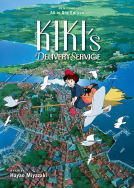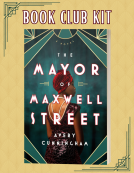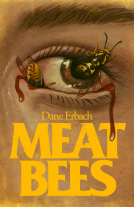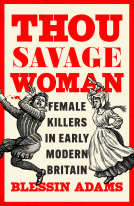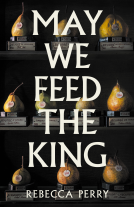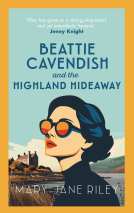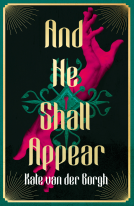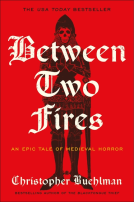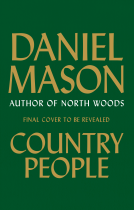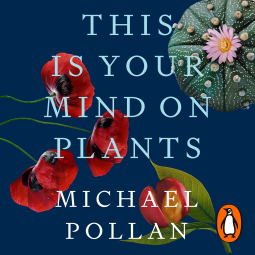
This Is Your Mind On Plants
Opium—Caffeine—Mescaline
by Michael Pollan
Narrated by Michael Pollan
This title was previously available on NetGalley and is now archived.
Send NetGalley books directly to your Kindle or Kindle app
1
To read on a Kindle or Kindle app, please add kindle@netgalley.com as an approved email address to receive files in your Amazon account. Click here for step-by-step instructions.
2
Also find your Kindle email address within your Amazon account, and enter it here.
Pub Date 8 Jul 2021 | Archive Date 9 Jul 2021
Penguin Random House UK Audio | Allen Lane
Talking about this book? Use #ThisIsYourMindOnPlants #NetGalley. More hashtag tips!
Description
Brought to you by Penguin.
Of all the many things humans rely on plants for, surely the most curious is our use of them to change consciousness: to stimulate, calm, or completely alter the qualities of our mental experience. In This Is Your Mind On Plants, Michael Pollan explores three very different drugs - opium, caffeine and mescaline - and throws the fundamental strangeness of our thinking about them into sharp relief. Exploring and participating in the cultures that have grown up around these drugs, while consuming (or in the case of caffeine, trying not to consume) them, Pollan reckons with the powerful human attraction to psychoactive plants, and the equally powerful taboos.
In a unique blend of history, science, memoir and reportage, Pollan shines a fresh light on a subject that is all too often treated reductively. In doing so, he proves that there is much more to say about these plants than simply debating their regulation, for when we take them into our bodies and let them change our minds, we are engaging with nature in one of the most profound ways we can. This ground-breaking and singular book holds up a mirror to our fundamental human needs and aspirations, the operations of our minds and our entanglement with the natural world.
© Michael Pollan 2021 (P) Penguin Audio 2021
Available Editions
| EDITION | Other Format, Unabridged |
| ISBN | 9780241529294 |
| PRICE | £10.83 (GBP) |
| DURATION | 7 Hours, 37 Minutes |
Links
Average rating from 27 members
Featured Reviews
 Heather C, Reviewer
Heather C, Reviewer
a book full of facts, urban myths, history, culture and a lot of science. The subject is three plant based drugs caffeine, opium and mescaline, whilst i understood the downside of a coffee habit but knew nothing about the other two. except they are additive. The author explained in a fairly simple language the science and agri science behind these plants. A great deal of historical information relating to harvesting, export, demand, income and trends during the centuries. Fascinating stuff and interested in reading more from this author. Thank you #NetGalley for the audio book.
 Louise O, Reviewer
Louise O, Reviewer
I enjoyed Michael Pollan's book about psychoactive plants and how they can affect our minds and wellbeing. I have no interest in taking illicit substances, but I do like a good cup of tea or coffee. I think this book was good at highlighting the sometimes arbitrary line between what we say are legal stimulants and what we say is illegal.
I think it worked well as an audio book, particuarly given it was the author's rather personal take on the subject and he also read the book. The book was also quite US-centric and was set within the US legal system and tensions, such as gun-control. I thought this somewhat distanced non-US readers from the book, although the issues were still familiar.
I thought this was an interesting and accessible take on the subject and was good at questioning why we draw the lines we do on what are acceptable and unacceptable stimulants.
 Reviewer 769477
Reviewer 769477
I received a copy of the book by NetGalley but the opinions in this review are my own.
In depth work of research done on 3 different plants that naturally produce opium, caffeine, and mescaline. The subject is incredibly interesting and the information is there and as far as I could tell reliable and factual. The only thing that makes me decrease my mark is that the book was written like a newspaper or magazine article, rather than what I envision being a science book. There are a lot of personal stories about the making of this work and the author’s experience with each plant which I did not particularly enjoy at times.
I fancied something a bit 'different' to my usual summer romance reads and this fitted the bill.
I love a book where I can learn something without it being dry and feeling like you're being lectured at.
This book is just that. A fascinating insight into some "mainstream" (not the right word but I can't put my finger on it) drugs derived solely from nature. Its not a subject I knew anything about or have had any experience with so I enjoyed this. It was interesting to go on the authors journey of discovery with him with its pitfalls and positives.
Thoroughly recommend.
This is a solid 4 star from me.
I was definitely drawn in by the title here, as it seems such an interesting topic! The subject matter was really interesting and I really liked how the author wrote this and weaved in a mix of personal experiences, scientific research and information about the plants and effects included throughout the book
As there’s so many subsets and different things to talk about and potentially cover in this book, to whittle down the breadth of this field, the author split the book into three parts with one plant dedicated to each.
Starting with Opiates, it’s history, relations to the law and its effects in part one, the book then goes into part two on caffeine (something I think most people will have a vested interest in!) and then reaching the third part on Mescaline. My only small point is that the title might be a bit misleading as there’s less effect of these plants on the mind and neuroscience/ behavioural science than I was expecting but it was delved into on the caffeine chapter. It was great to learn about the culture of caffeine and I really enjoyed learning more about this!
I really loved hearing about the authors own encounters and experiences too. And I also thought the covid and pandemic tie in within the third chapter was great as well!
It was really interesting and worked well in audiobook format too. I always love it when the author narrates their own books and this one was easy and effortless to listen to. Plenty of interesting points and facts here: I’ve definitely come away knowing a lot more about this subject than when I started! (Although frankly not hard as I self confess I didn’t know a lot to begin with- it was interesting to learn!)
All in all, a good listen and of interest to anyone who would like to know more about these three important plants that can have such an impact.
This is your Mind on Plants is an.interesting book about three different plant-based mind-altering drugs.
The text is free ranging, covering many aspects of each substance, from the effect on the human mind to horticulture, to the vastly different government attitudes to each drug. I found the analysis of the US government’s War on Drugs since the 1990s to be particularly interesting, as the author had quite a bit of first hand knowledge. I appreciated the author’s commitment to his book which meant that he gave up caffeine for over a month, which is something I wouldn’t want to do myself!
The audiobook was read by the author and I enjoyed his pleasant American accent and relaxed pace. The only thing I missed from the audiobook was the footnotes.
Thanks to the author, publisher and NetGalley for providing a pre-release copy of both the text and the audio in exchange for honest feedback.
This is an informative, involved account of natural substances, where they come from and how we consume them.
It was well narrated and kept me interested in each subsequent chapter with its well written book.
Many thanks to the author, publisher and NetGalley for gifting me this arc in exchange for an honest, unbiased review.
As an avid reader of books about the Victorian era, I'm no stranger to opium - purely in the context of reading, you understand, rather than personal experience! I am, however, a confirmed and accepting caffeine addict so this book - focused on opium, caffeine and mescaline - sounded absolutely fascinating. I duly downloaded the audiobook and got stuck in...
The book is divided into three sections, each focusing on one of the key plant-based drugs. Although all of them were interesting in different ways, I did find this made for a slightly disjointed book and my thoughts on each separate element varied a lot. This is especially true given that the three sections take very different approaches. Pollan is a writer, keen gardener and - it transpires - quite willing to experience the effects of the various plants in the name of research! The book, therefore, covers lots of bases, from science to history, gardening to memoir.
The first section, on opium, charts his experiences with growing opium poppies and the rather ambiguous position regarding the legalities of this in America. Indeed, a lot of this section is about the technicalities of growing opium in the eyes of the law - you can buy the seeds legally, but planting and harvesting them are much greyer areas. Pollan engagingly asks the question about where the line between legal and illegal is drawn in an America which was just embarking on its experiences of the opioid Oxycontin - amateur gardeners may be getting in trouble for cultivating 'papaver somniferum' but the Sackler family were legally distributing the drug to millions.
The section about caffeine was the one that I found the most interesting - I'm a fairly heavy user of coffee and Pollan's insights into coffee withdrawal, effect on sleep and the morals of caffeine gave me plenty of food for thought. I'd never even considered that caffeine really had a moral question, but Pollan's focus on the 'big picture' was really interesting - the fact that caffeine is linked to productivity, breaks our circadian rhythms, plus has links to both slavery and Empire. This bit of the book is packed with interesting historical information and opened my eyes to the impact of caffeine, such as the advent of coffee houses in the 17th century driving innovation and creativity. From Voltaire consuming (reportedly) 72 cups of coffee a day to the fact that the modern sleep experts that Pollan spoke to drink none (hmm, slightly worrying for me...) - there was plenty to think about.
The third section is about mescaline, a drug derived from cacti and used within Native American populations as part of their religious ceremonies. This bit of the book is more memoir, with Pollan charting his own instances of using the drug and participating in traditional ceremonies using the hallucinogen. I'm sure it is an interesting thing to experience, but the recounting of it is a little like the drug narratives of 1970s fiction which also didn't really float my boat - it's a bit like hearing someone recall their dreams in vivid detail. Not always fun to listen to, although Pollan is an engaging tour guide regardless.
The audiobook is narrated by the author himself, something I enjoyed as he is a lively and engaging reader. It feels like a personal chat with him about his experiences with these plants and I did race through the book. It is a very easy listen and I felt that I learnt lots from my knowledgeable and entertaining guide.
Overall, I'd recommend this to anyone who has an interest in plants, medicine, history, law or who just fancies an interesting jaunt through a fascinating topic. If I had one criticism, it is that it tries to be too many things - my personal preference is for the discursive and historical slant of the caffeine section of the book, but I am sure others will appreciate different aspects. Well worth a read!
In his latest book on the plant-people relationship, author, journalist and avid amateur gardener Michael Pollan turns his eye to the opium poppy, caffeine (derived from Coffea arabica) and mescaline (from the peyote cactus)..
Each of these drugs are either, as he puts it, an upper, downer or 'outer'. His exploration takes in their political and socio-cultural history, highlighting the arbitrary nature of their public reputation. As ever, Pollan can't resist getting up close and personal with the plants.
The author has an engagingly anecdotal writing style.
The audiobook, narrated by Pollan, made me feel I was sharing a coffee with the author.
Well produced and highly entertaining.
My thanks to NetGalley and Penguin Random House UK Audio for the ARC.
 Librarian 250745
Librarian 250745
Audio arc provided by NetGalley in exchange for an honest review
Michael Pollan narrated his own audio and it worked really well. When author's have decent voices and read well, it can work better than hiring a narrator since the author knows exactly the intonation and delivery they want and exactly how they want to convey the information. Pollan was interesting to listen to and having him narrate his own book added a personal touch.
The book itself is fascinating. I have a life long interest in plants (which resulted in a degree in plant biology and genetics), though only a theoretical knowledge of psychotropic/ psychedelic plant substances! My interest in plants was kindled as a very young child by my father - who clearly thought that if his children were going to roam wild in rural Dorset, they ought to know which plants were poisonous and which were safe if handled respectfully. The idea that a plant could be a thing of beauty, a source of food, a source of medicine and an organism which helped renew the soil and assist the overall ecosystem took root early. I'm not sure how Pollan got into plants but the way he speaks about them echoes my own feelings and thoughts. There is as much poetry in the science when you know it as there is feeling in the poetry surrounding plants.
This book focuses on mind altering substances derived from prepared plants. Pollan has not been shy about experimenting either - something which I have never really wanted to do. Specifically, these substances change how you, the ingestor of said plant, perceive reality. Weaving together strands of history, culture, law and religion, Pollan looks at the human fascination with being able to take short trips to Wonderland. He does not obfuscate the perils nor does he downplay the benefits. There's certainly a lot of evidence that psychedelics can assist with a number of mental issues such as PTSD and depression. Finally, he discusses the questionable practice of making some plant substances illegal and calling them 'drugs' when very similar, potentially more harmful substances are manufactured, licensed and sold enriching Big Pharma. The law around these substances is idiosyncratic, capricious and badly enforced. And ultimately futile because it is a war on human desire. While laws such as those that protect Native American rights with regard to Peyote must remain in place, other laws are somewhat asinine. I am curious to find out what the corresponding situation is here in UK (although we don't really have the climate for growing Peyote!)
Overall a fascinating book, told in an accessible and engaging manner. Very enjoyable. Highly recommend if you have an interest in this area
 Reviewer 207084
Reviewer 207084
What is a socially acceptable drug? Michael Pollan tries to help us understand this question, (sharing that it is a blurred line only defined by laws, government and what they deem 'socially acceptable').
So what are your plant "taboos"? Do you take homeopathic or alternative/natural medicines? Are medically prescribed (opiates etc), acceptable or do you hide their use? Do you know the rules as each government keeps changing the rules? In USA this is even more complex as the states have their own accepted drugs which may differ from those of the government.
The author relates some international and historical reflections on these issues.
As an American he focuses more on his own stories, experiences rather than an international one. The audiobook is based on the results of the American 'war on drugs' and how it has eroded people's rights.
The audiobook is narrated well, his shock at his findings and research is clear. The lack of any clear guidance in the USA is made obvious as he relates all the checks he makes with different legal agencies, getting different, muddled or confused responses. He uses an anecdote to illustrate how arbitrary this law is in ‘the war on drugs’ in the USA:
'It's as if they had on the books a 20 mph speed limit that was never posted, never enforced, never even talked about. There's no way for you to know that this is the law. Then they pick someone out.
"You were going 50, don't you know the speed limit is 20? You broke the law, you're going to Jail".
You say "But nobody else is being stopped."
"That doesn't matter this is the law and we have the discretion. The fact that your car is covered with political bumper stickers, that we don't like, has nothing to do with it. This isn't about free speech." '
The writing feels a bit docudrama style in places rather than a non-fiction text about plants’ and humans’ relationships.
I would recommend this as something to listen to on a long walk or to keep you company and has some gardening and botanical parts. It's not one thing or the other and is almost a reference to all the texts you should read up on. This is not a serious text which is scientific or analytical with lots of research quoted.
If this subject interests you then this is an interesting listen and is read engagingly.
I received a free copy from netgally.co.uk for my fair an
 Catalina S, Librarian
Catalina S, Librarian
3.5
Despite this straying far from what is says on the tin, err I mean what is says in the blurb, Michael Pollan is a great storyteller, and I've enjoyed this more that I though I will after the first few minutes of listening.
I will start by saying that the books lack cohesion. While Caffeine and Mescaline seems to be built on a similar frame, Opium has a different format, but if you ignore that, it still fits in the greater 'picture'. This is due to the fact that each part has been written at different times and collected here because they cover a somewhat similar subject: plant drugs and our relationship with them, rather than being new material written specifically for this book.
Secondly, I feel it's important to mention that this is by no means a scientific work. It is a journalistic approach to a wide subject, combining scientific facts with history, urban lore, personal experience(that of the author and various persons that he has interviewed) and even touches on law. As a cynic would expect from a journalist, Pollan cannot help himself and makes some eye rolling assumptions like: <>, <>, <>.
Opium is the weakest part of the book and in fact the least fitting as apart from a couple of minutes were we find out how one feels after drinking poppy tea, the piece strays far from "your mind on plants" mantra. But despite that, I've appreciated this part because it shows perfectly well how ridiculous the war on drugs is and how at time it seems more like fantasy than reality.
Caffeine is the most extensive part and the one I really really enjoyed. It is full of historical facts and lore, some research into the positive and negative effects associated with caffeine use, and the author's personal experience of caffeine withdrawal. Even the dark side of it is covered from slavery to today's fair trade protocols. Also interesting to see the effects of temperature rising on this much loved crop. I can go as far as saying that this section really makes the book.
Mescaline is to a certain extent build on the same frame as caffeine. But the lack of historical evidence paired with a pandemic raging on the world, forced the author to get creative and show us instead that this world holds a lot of wonder if we'd just stop to look and maybe take some mescaline, lol. I'd say this section falls short of the premise of the book, and his attempts to demonstrate that mescaline is an essential part of the Natives' culture, what it means for them and also that it verges on 'cultural appropriation is rather unconvincing.
Despite my criticism and the somewhat misleading blurb, 'This is Your Mind on Plants' is a fascinating foray into an exciting subject. I would recommend the audiobook, as the author really is a great storyteller and his narration is spot on.
Many thanks for the opportunity to listen to this Audiobook.
⭐️⭐️⭐️
I was gifted this book by Penguin Random House UK Audio through NetGalley in exchange for an honest review.
This book explores the authors experience with three specific plant based drugs; opium, caffeine and mescaline.
The book is nicely split into three distinct parts, one for each topic and reads like more of a memoir with added factual tidbits.
The author explains his background and introduction to the drug, interviews relevant experts and then states how he either partakes or abstains as his experiment warrants.
The only one of the three drugs I have experience with is caffeine and I did find the section on the history of how caffeine became a staple of modern life interesting.
Overall, an enjoyable read, although this was different to what I expected and did not go as heavily into the science as I’d hoped.
Readers who liked this book also liked:
Created by Hayao Miyazaki
Comics & Graphic Novels, Sci Fi & Fantasy
We Are Bookish
Historical Fiction, Literary Fiction, Multicultural Interest
